The third post in the Micronutrients and Macronutrients with SIBO series is Vitamin D and SIBO.
No matter how healthy and well you might think you are, most people will show some sort of vitamin D deficiency during a routine test.
“Getting the right amount of vitamin D doesn’t depend on the foods you eat. To get enough vitamin D you need to expose your skin to sunlight regularly and you may also need to take supplements. This makes getting the right amount a little more complex compared to other vitamins and minerals.” (source)
Even when I lived in sunny California, I was deficient in Vitamin D. It’s not uncommon, not even a little bit.
And still, we should not be deficient in it; we should do everything we can to keep normal vitamin D levels.
Vitamin D and SIBO
Click HERE to save this post for later.
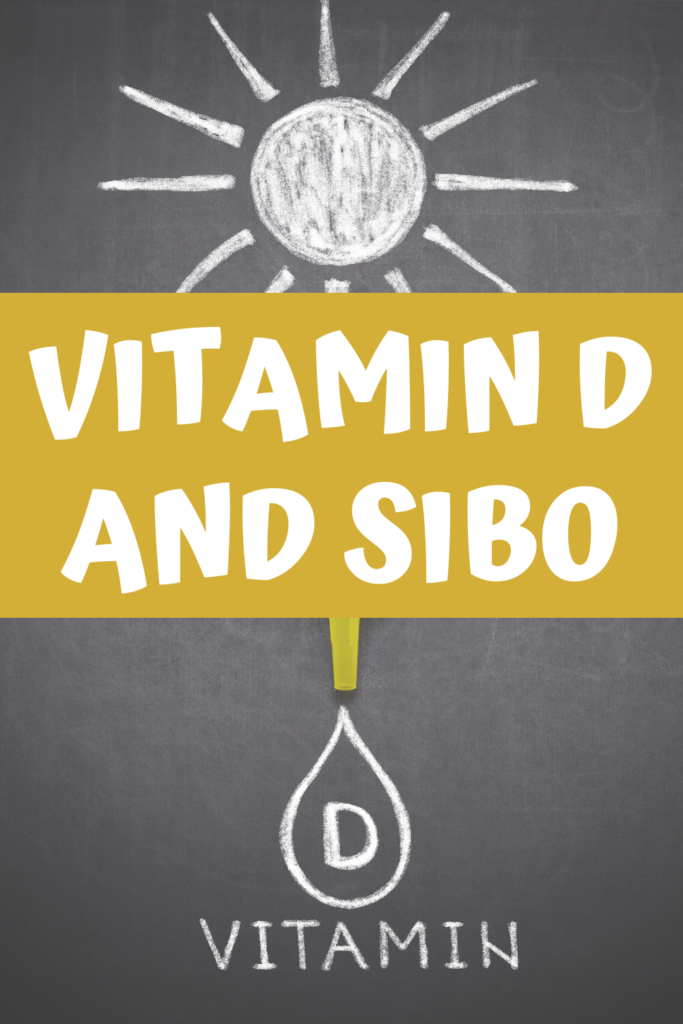
If your SIBO is bad enough, it’s likely to rob you of almost every nutrient imaginable.
The key is to heal, but in the meantime, keeping up with any super low vitamin levels to ensure another condition doesn’t arise.
What is Vitamin D?
Vitamin D is a fat-soluble vitamin that is naturally present in very few foods, added to others, and available as a dietary supplement.
It is also produced endogenously when ultraviolet rays from sunlight strike the skin and trigger vitamin D synthesis.
These are the recommended levels, but as always, they are only meant to be guidelines.
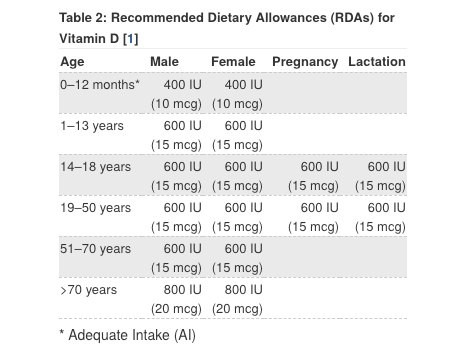
You should always work with your doctor on what s/he recommends for you and your circumstances.
(source)
What are Vitamin D deficiency symptoms?
Here are some vitamin D deficiency symptoms:
- soft, brittle bones
- bone pain
- muscle pain and weakness
- Rickets diagnosis (in children)
- Osteomalacia diagnosis (in adults)
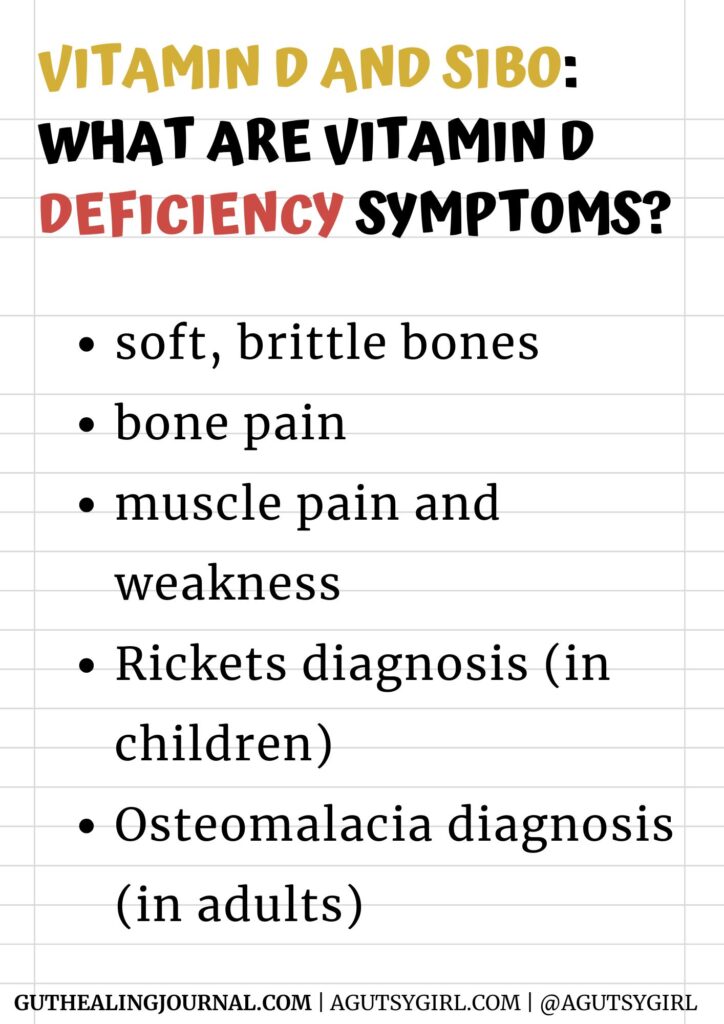
How to recover from Vitamin D deficiency?
If the primary reason you are deficient in vitamin D is due to the SIBO, then you’ll recover from it by doing intense gut healing.
This is because when you have SIBO or any other IBS or IBD, absorption of vitamin D from the digestive tract is inadequate.
Because vitamin D is a “fat-soluble vitamin, its absorption depends on the gut’s ability to absorb dietary fat. Individuals who have a reduced ability to absorb dietary fat might require vitamin D supplementation.
Fat malabsorption is associated with a variety of medical conditions, including some forms of liver disease, cystic fibrosis, celiac disease, and Crohn’s disease, as well as ulcerative colitis when the terminal ileum is inflamed.
In addition, people with some of these conditions might have lower intakes of certain foods, such as dairy products fortified with vitamin D.”
Here are some sources of where you can find vitamin D for recovery:
- Food. HERE is a list for vitamin D food sources.
- Sun exposure. “Most people meet at least some of their vitamin D needs through exposure to sunlight. Ultraviolet (UV) B radiation with a wavelength of 290–320 nanometers penetrates uncovered skin and converts cutaneous 7-dehydrocholesterol to previtamin D3, which in turn becomes vitamin D3.”
- Supplement HERE
Because people always ask, these are my 3 favorite ways to add more vitamin D to my diet:
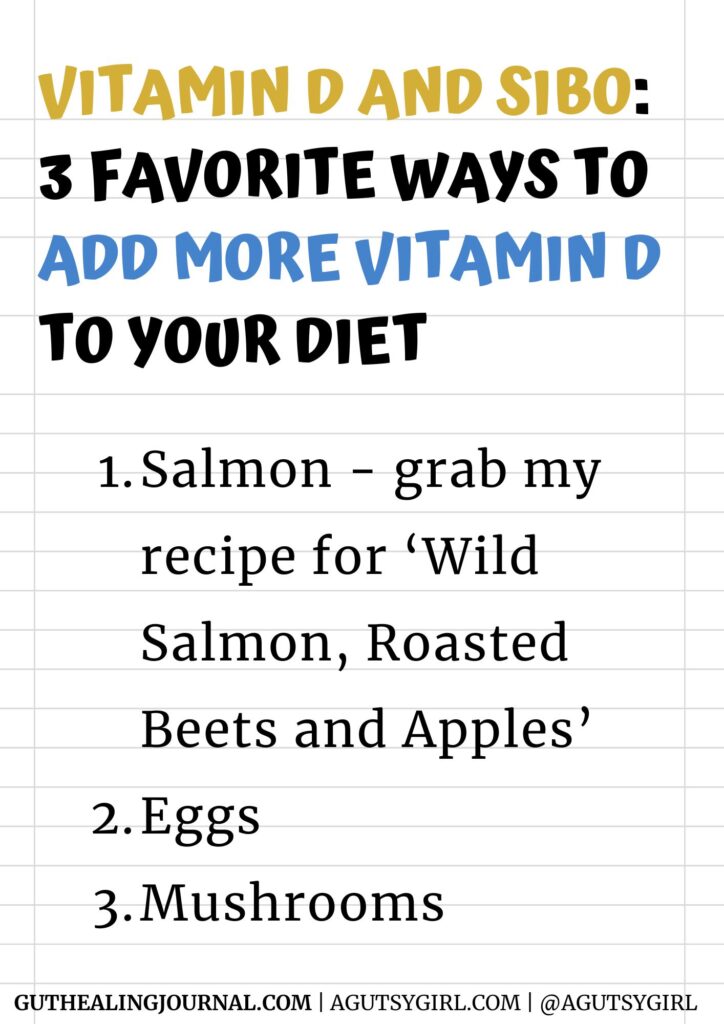
1] Salmon.
As a Flirting Vegetarian, I definitely still eat fish.
Salmon is probably my favorite, especially when it’s perfectly prepared.
According to the USDA Food Composition Database, one 3.5-ounce (100-gram) serving of salmon contains between 361 and 685 IU of vitamin D.
If you love salmon, too, try my Wild Salmon, Roasted Beets, and Apples dish.
2] Egg Yolks.
Never fear the yolk.
It’s where all the goods are found (read: Incredible Egg Yolk).
We do an Avocado and Egg Toast Bar weekly, if not twice per week.
“One typical egg yolk from chickens raised indoors contains 18–39 IU of vitamin D, which isn’t very high. However, pasture-raised chickens that roam outside in the sunlight produce eggs with levels 3–4 times higher.”
3] Mushrooms.
Give me all the mushrooms.
Love these so much. And now I want to be back in Italy, eating THESE mushrooms!
“Wild mushrooms are excellent sources of vitamin D2. In fact, some varieties pack up to 2,300 IU per 3.5-ounce (100-gram) serving — nearly four times the RDI.”
Have your vitamin D levels been tested lately? How are they? I’d love to hear from you.
If you liked this post, you might also enjoy:
- SIBO vs IBS {and a SIBO Q&A with Dr. Nirala Jacobi}
- SIBO Diet Recipes – A Gutsy Girl Way
- Reasonable SIBO E-Book
Xox,
SKH
Read all posts from this series:
🤰 bloating be gone! weight loss through optimal gut health for women
💃ʜᴇᴀʟ ʏᴏᴜʀ ɢᴜᴛ. ʜᴇᴀʟ ʏᴏᴜʀ ʟɪfe.
🫶🏻 founder gutbyome.com



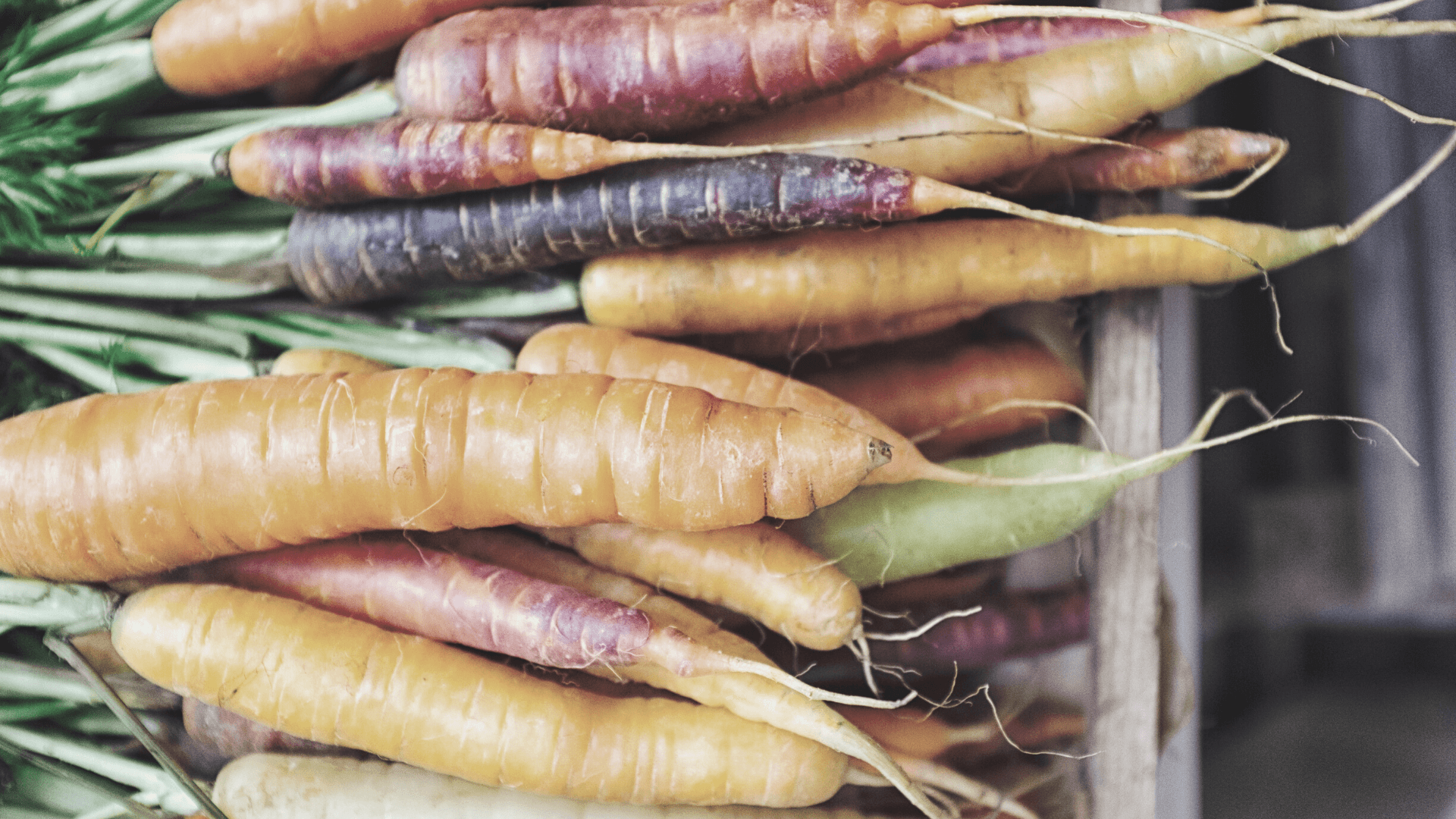
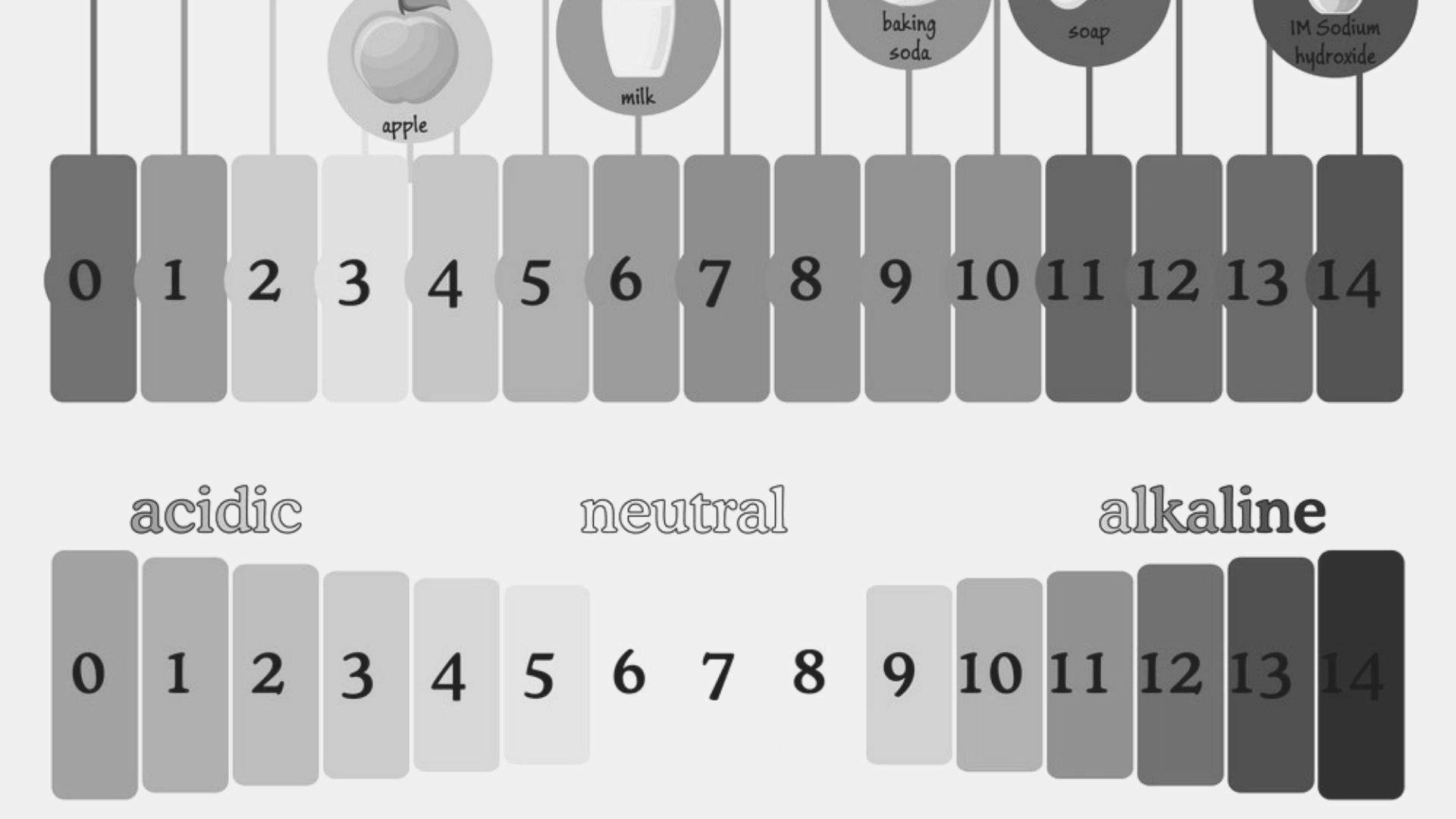
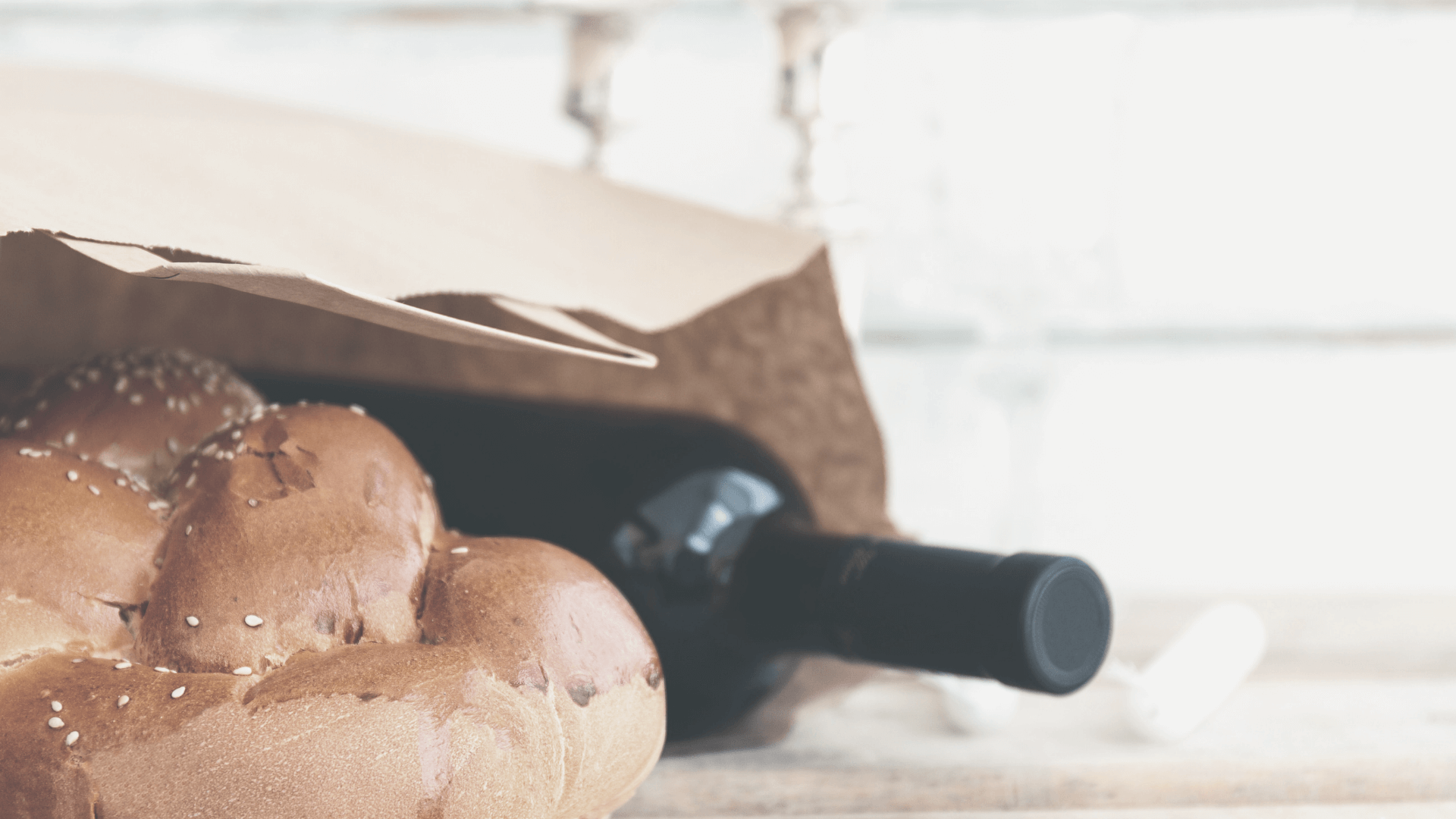
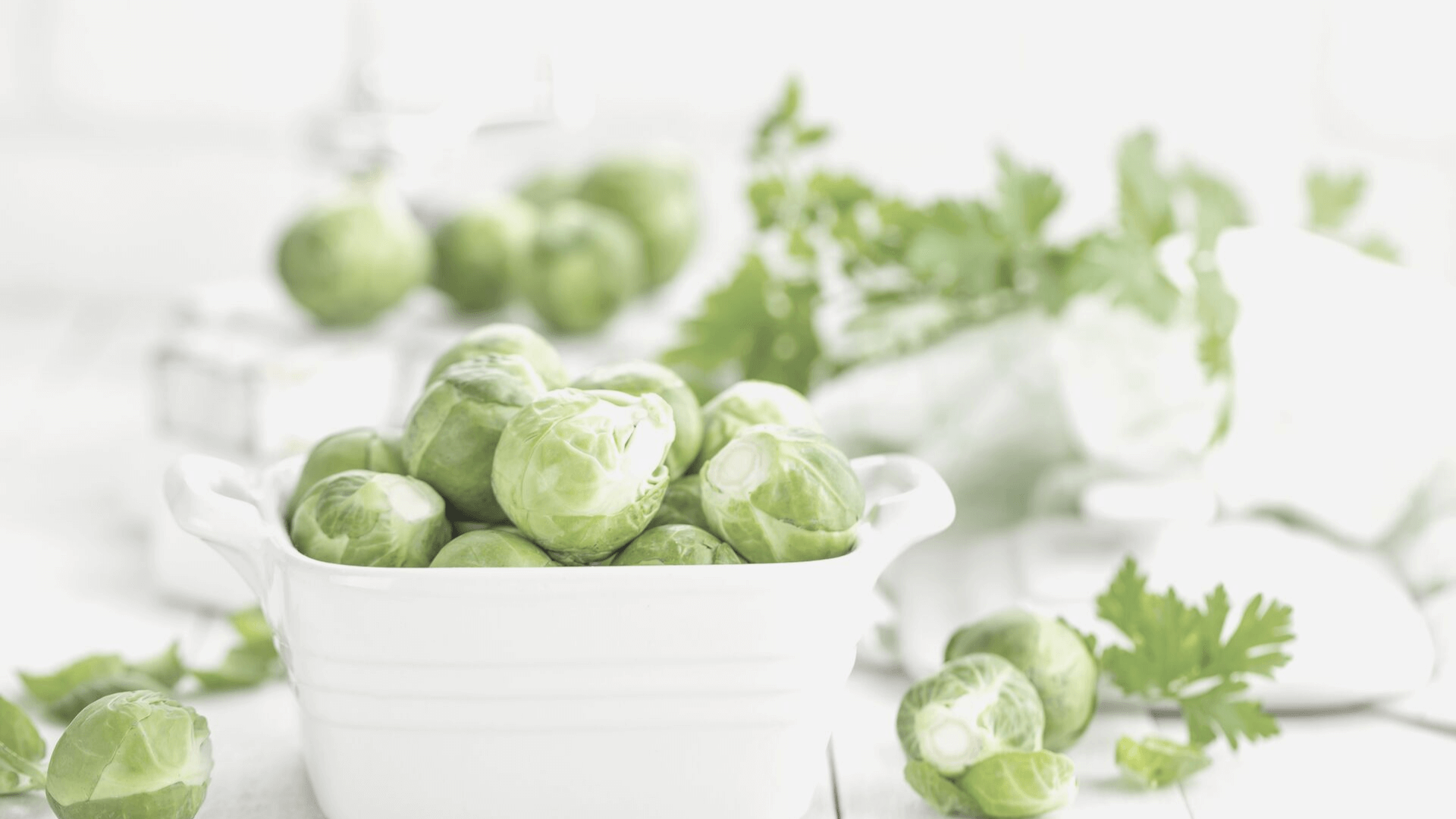
What is SIBO?
Great question! Here you go –> http://bit.ly/skhsibo
Hey,
Thanks so much for sharing valuable information about gut health. I was diagnosed with Sibo a while ago and I’m finally on antimicrobials. Sibo has clearly caused so much deficiency that I have to take a couple of supplements to heal. Thanks for all that you do! 🙂
Take good care, Pooja – and thank you for joining the journey!
Hi. Did you ever get rid of SIBO ?
Hi! Yes! I healed for good from it in 2018 and am still holding strong 🙂